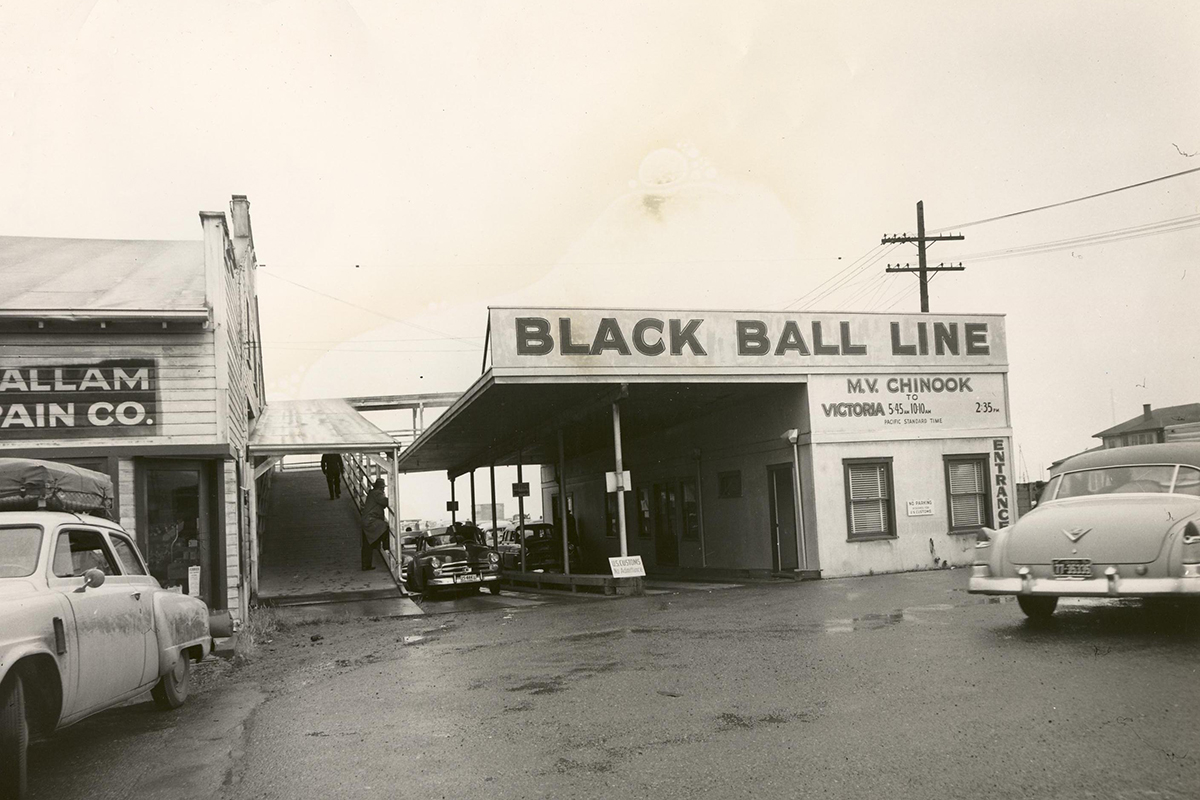In 2018, the Black Ball flag celebrated 200 years in maritime operation. Since 1818, ships have proudly flown the Black Ball flag — displayed as a black “ball” on a red background. Today, the flag is flown on the mast of the M.V. Coho, serving the run between Port Angeles, WA and Victoria, BC. What lies in between is a story of family riches, international fame, and astonishing ingenuity that helped build the modern world.
BLACK BALL’S BEGINNING CHANGES EVERYTHING
Prior to 1818, ships sailed on their own schedule, waiting until their holds were full. This left passengers and freight to languish in port — sometimes for weeks — until the ship was ready to depart. The Black Ball Line changed all of that. Its founders, a group of New York Quakers, had a profoundly simple, but game-changing idea: scheduled service. While the modern traveler probably couldn’t imagine not having a set time for departure, the Black Ball Line, with its fleet of trans-Atlantic packet ships, signaled the first-time ships left port on a specific date.
On January 5, 1818, the James Monroe — one of Black Ball Line’s famed ships — made the first scheduled departure from New York Harbor to Liverpool, England. The James Monroe and the other Black Ball ships of the period featured generous hold space for freight and were lavishly appointed for passengers with staterooms and common dining areas for first-class passengers, complete with whale-oil lanterns and silver service. Despite all the luxuries, the James Monroe made the trip in an astonishing 24 days, at a time when the typical eastward trip could take as long as 45 days.
This was no anomaly, Black Ball sailing ships were all very fast for their day and became legendary for their speed and reliability, inspiring sea shanties that are still remembered today. For example, the first recorded lyrics of “Blow the Man Down” boasted of the speed of Black Ball Line ships, and the skill of their captains.
Media Downloads
 200th Anniversary Press Release
200th Anniversary Press Release  Black Ball History
Black Ball History  About Black Ball
About Black Ball
Contact Us
Inquires in the USA:
888-99-FERRY
360-457-4491
Inquires in Canada:
800-COHO-4751
250-386-2202
BLACK BALL FLAG THROUGHOUT THE YEARS
One of the world’s oldest nautical flags still in service continues to fly on the M.V. Coho.


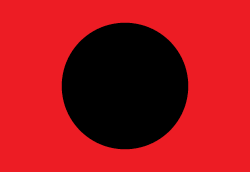
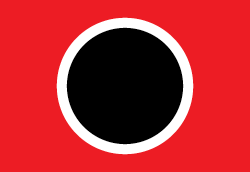
Timeline of the Black Ball Flag
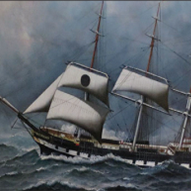
1818
Founders of the Black Ball Line inaugurate the first scheduled freight and passenger service with a fleet of four sailing ships between New York and Liverpool.
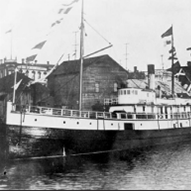
1894
Charles Peabody, grandson of one of the founders, moves west to Port Townsend, WA and starts the Alaska Steamship Company, bringing with him a variant of the Black Ball Flag.
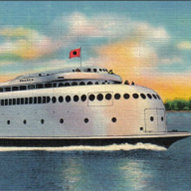
1928
Puget Sound Navigation Co. adopts the Black Ball moniker and flag, introducing Black Ball Ferries throughout the Northwest. The MV Kalakala, pictured above, debuted in 1935.
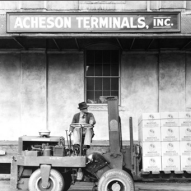
1936
Robert Acheson purchases Black Ball Freight Services from the company, eventually introducing Black Ball Transport and a new variant of the flag with a white circle that is still in use today.
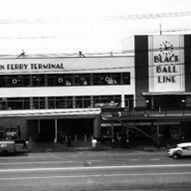
1951
Captain Peabody sells Puget Sound Navigation Co. to Washington State Ferries. Bing Crosby and the Andrews Sisters release the hit song "Black Ball Ferry Line".
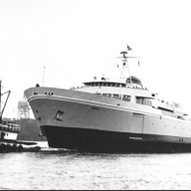
1959
Black Ball Transport constructs the MV Coho for the Port Angeles - Victoria route, initially with overnight freight routes to Port Townsend and Seattle. The MV Coho remains in Black Ball service.
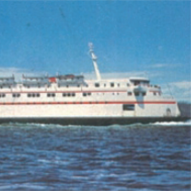
1961
After introducing service in 1951 as Black Ball Ferries Ltd., Peabody sells his Canadian vessels and operations to the Province of British Columbia, integrating them into what is now the BC Ferries corporation.
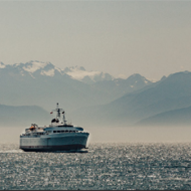
2018
We celebrate 200 years of the Black Ball flag in maritime operation!
Black Ball Ferry Line
By Bing Crosby and the Andrews Sisters
In 1951, Bing Crosby collaborated with the Andrews Sisters to record a song about Black Ball Ferry Line's various ferry routes throughout the Puget Sound. The song mentions Black Ball ferries such as the Illahee, the Chippewa, the Quillayute, and the Kalakala. Today, the song is played on our ship at the beginning and end of each crossing!
"... All the people love to ride the blue Pacific,
On the Black Ball Ferry Line, to be specific,
While the whistles blow and the bells go,
And the ferry boats are chuggin' right along, right along."



